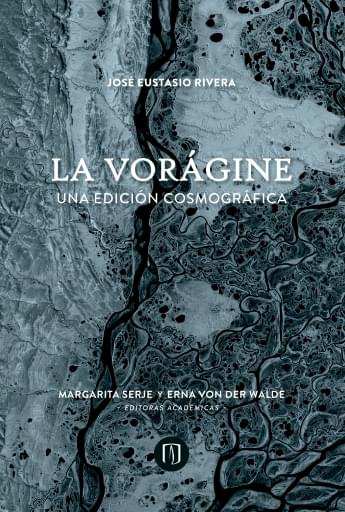
José Eustasio Rivera: La vorágine: Una edición cosmográfica
In this cosmographic edition, reading La vorágine is inseparable from reading the territory in which it develops. Almost a century after its first publication, Margarita Serje and Erna von der Walde, in their original approach to the text, take the last version José Eustasio Rivera published in his lifetime and recover the maps that the author included, but that were omitted in future editions. Likewise, the cosmographic edition of this classic of Colombian literature presents six maps designed especially to accompany readers in their journey through the Orinoco-Amazon region and includes a selection of writings by naturalists, missionaries, government officials, and specialists in social sciences, offering a panoramic range of perspectives on the area where the novel takes place and laying a path towards its historical dimension.
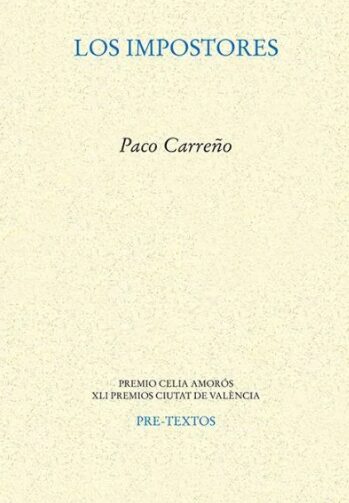
Paco Carreño: Los impostores
The most brutal serial killer in Argentina’s history clung to the hope that they would someday make a film based on his life, directed by Quentin Tarantino and starring Leonardo DiCaprio. His case, like many others dealt with in Los impostores, cries out to be recognized. These strange and abhorrent ways of gaining visibility come at a time when words seem insufficient to offer any consciousness of having a place in the world. The main shortcoming in these lives is a deficiency in their capacity as speakers. Their own language is limited when it comes to making sense of their lives. They lack the words necessary to find themselves in the eyes of others. In a world dominated by doings, this essay is an attempt to recover the word’s sovereignty. The freedom of mankind is impossible without the prior freedom of our words.
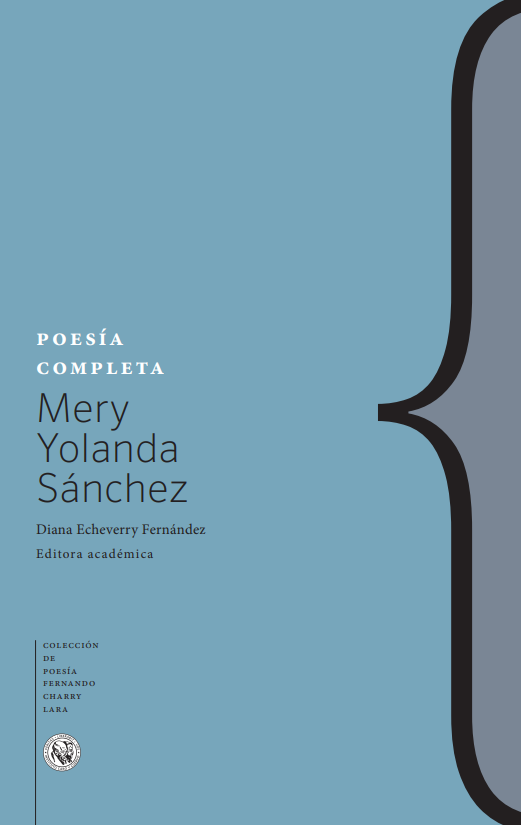
Mery Yolanda Sánchez: Poesía completa
“Before the butterfly’s flight, you knew of infamy. They taught you not to loose the arrow so as to avoid regret. They told you you had to invent a family, and you got it entirely together for the murderers. You did not await the offspring of your urges. Old as you are, you will not cry for those unborn. You’re well aware that theirs is the glory of eternity.” This poem is a display of the expressive potency that permeates the poetry of Mery Yolanda Sánchez, published here for the first time in its entirety, includying her latest book, hitherto unpublished. In this essential book, readers will experience the presence of the victims of Colombia’s violence. It is only fitting to let yourself be carried along on the emotions, often angular and cutting, that these poems construct.
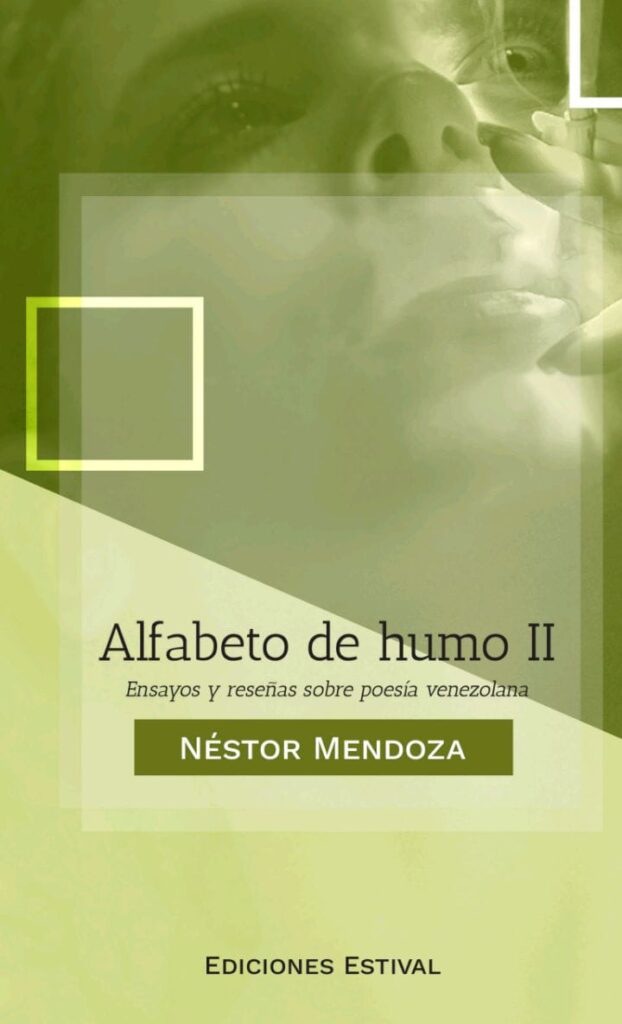
Néstor Mendoza: Alfabeto de humo II: Ensayos y reseñas sobre poesía venezolana
Reading Alfabeto de humo II: Ensayos y reseñas sobre poesía venezolana is an act that lends new dimensions to our experience of Venezuelan literature, which is broad-ranging and varied. In this exercise, we find texts that refract off one another in their discourse, or, as author Néstor Mendoza puts it: “The mirror can be that which I see out there, we add to it.” The organic character of the word that contains its own pulse, as an almost immediate purification of readings, thought, and emotion. The poets whom Mendoza addresses outline subjects such as death, the air of Venezuelan territory at any of its cardinal points, and the air of the Mediterranean, and also enter into intertextuality, exile, love, uprootedness, light and aridity, and with it, rain. – José Ygnacio Ochoa
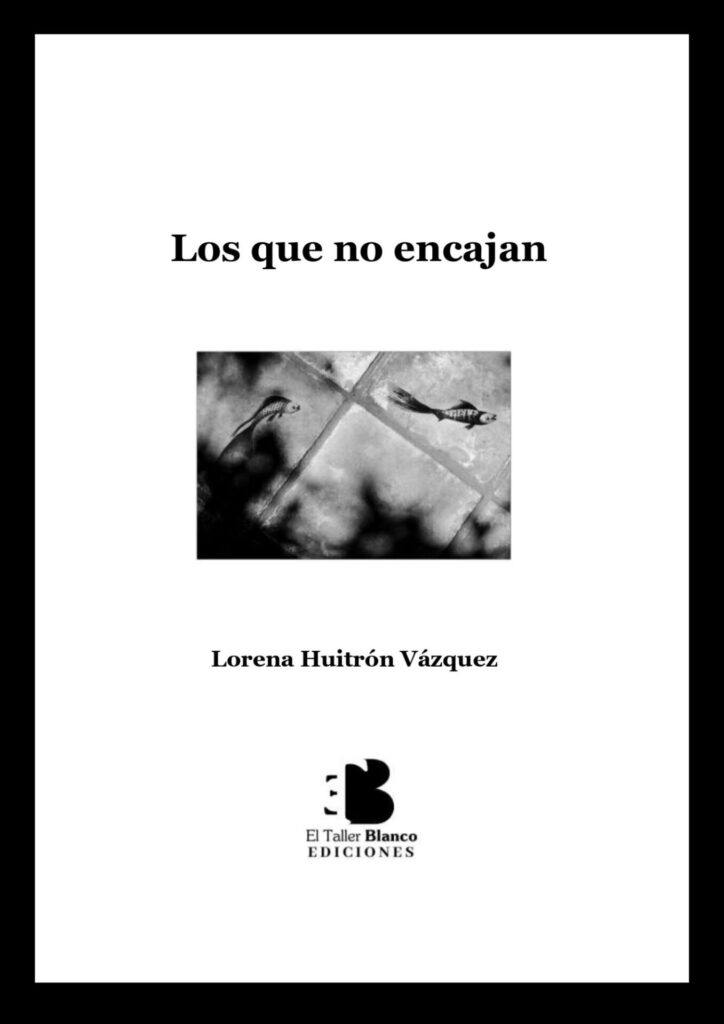
Lorena Huitrón Vázquez: Los que no encajan
Designed as a tryptych, Los que no encajan starts by setting foot in a landscape apparently unnatural to poetry: the medical world and phototherapy. We are not accustomed to light, the voice of “Solarium” seems to tell us, as soon as the book begins. Its second part, “Teorema de Bernoulli,” delves into betta fish and jellyfish. In an experimental key, the poems interweave different images to compose a separate, distant language, close to the voice of the poet herself. The final section, titled “Gimnasia respiratoria automática,” closes the book with a return of that light that had blinded us before: “Either we come late to luminosity or it will simply be far from us forever.” Nostalgic for light, love, closeness, the poet writes: “Our love has been like asthma, / labored breath in company.” A suggestive metaphor for the very act of reading this book: breathing in company, shared light, an image recombined. – Marcelo Rioseco
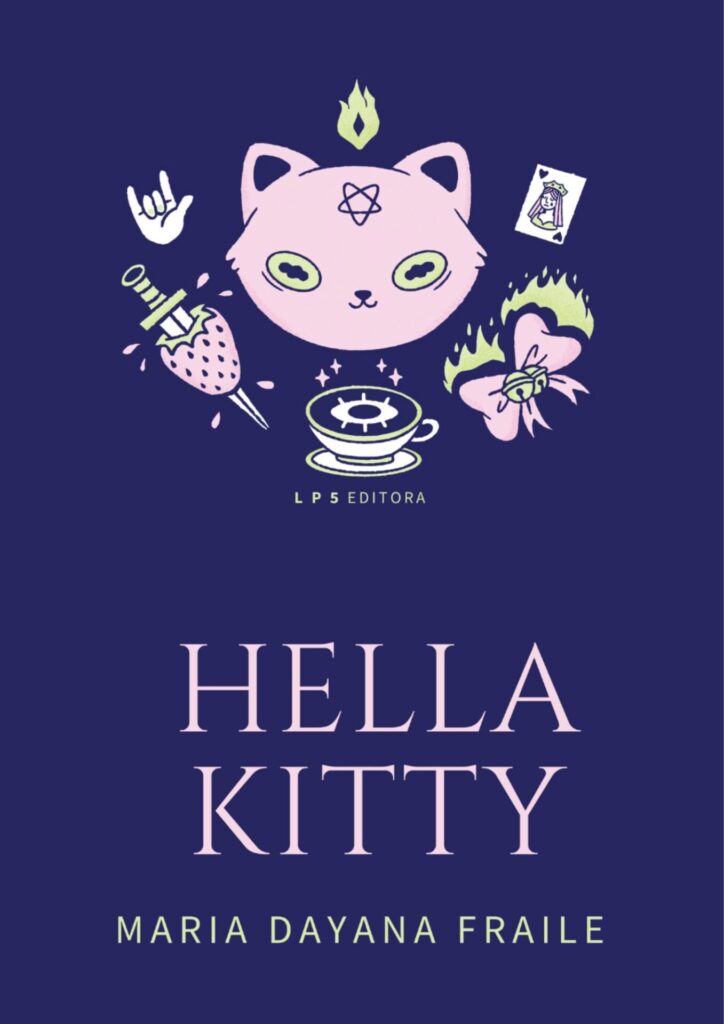
Maria Dayana Fraile: Hella Kitty
Hella Kitty is a compendium of frenetic, solar love, a kingdom of figures and metaphors where the biological and the philosophical dance to a rhythm set by the soul. In its pages, a world becomes a toy, a body transforms into a nucleus, and a murderous moustache guides us through a theorem of bare feet on the glass of the capitalist economy. Dress in silk, embrace the shadow of the wild, and prepare yourself for an unparalleled literary journey with Hella Kitty. Fraile invites us to a space where femininity is revealed as both amusing and fiercely critical of the system in all its gradients. Discover the voice of a deadly poet, a model narrator, and a murderous doll who redefines the limits of both poem and story. – Gladys Mendía
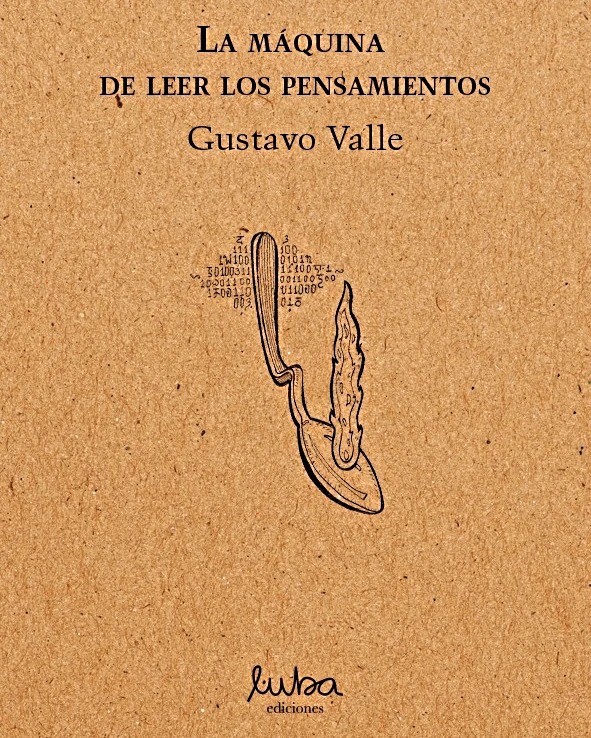
Gustavo Valle: La máquina de leer los pensamientos
Luba Ediciones presents La máquina de leer los pensamientos (2024) by Gustavo Valle, a writer who has made headway in Venezuelan literature calmly and at his own pace. Valle is a first-rate author who has worked on both novels and poetry. This is far from his first poetic offering. Ciudad imaginaria is a magnificent book of poems published in 2006, whose rereading reveals a poet who was already mature at the time. Materia de otro mundo, from 2003, likewise evinces its author’s poetic calling. La máquina de leer los pensamientos is Valle’s third poetry collection. Its verses are short, precise knifestrokes, entering into an ontology that folds over the world’s matter with the fire of language. This is a fine work of poetry inscribed in a book from an independent press—one of those whose work is genuinely worthwhile because they put love into it and produce exquisite, delicate editions that are a pleasure to have and to read. The cover illustration, I’m happy to say, is my own. – Fedosy Santaella
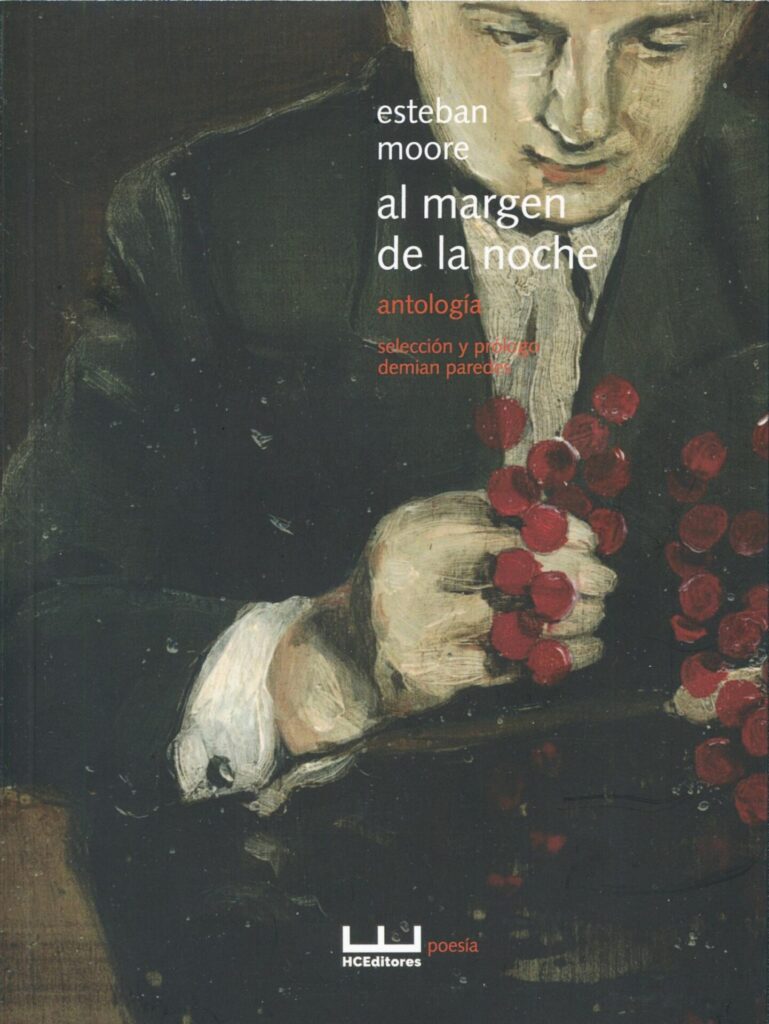
Esteban Moore: Al margen de la noche (antología)
This poetry is born of a deeply-held commitment to existence. Reality and personal experience are dialectically conjugated, distilling a poetic universe all its own whose shape has evolved from rigorous schematism into the expanding density of a rich metaphorical imagination. Moore’s language has maintained not only its accented identity but also a worthy level of precision. Shot through by an emotional charge articulated with lucid intellect, these texts reveal the poetry in things and in the world in general. His gaze open to a multiplicity of subjects, Esteban Moore shows himself to be, at the peak of his creative enterprise, a living presence in our letters. – Joaquin O. Giannuzzi
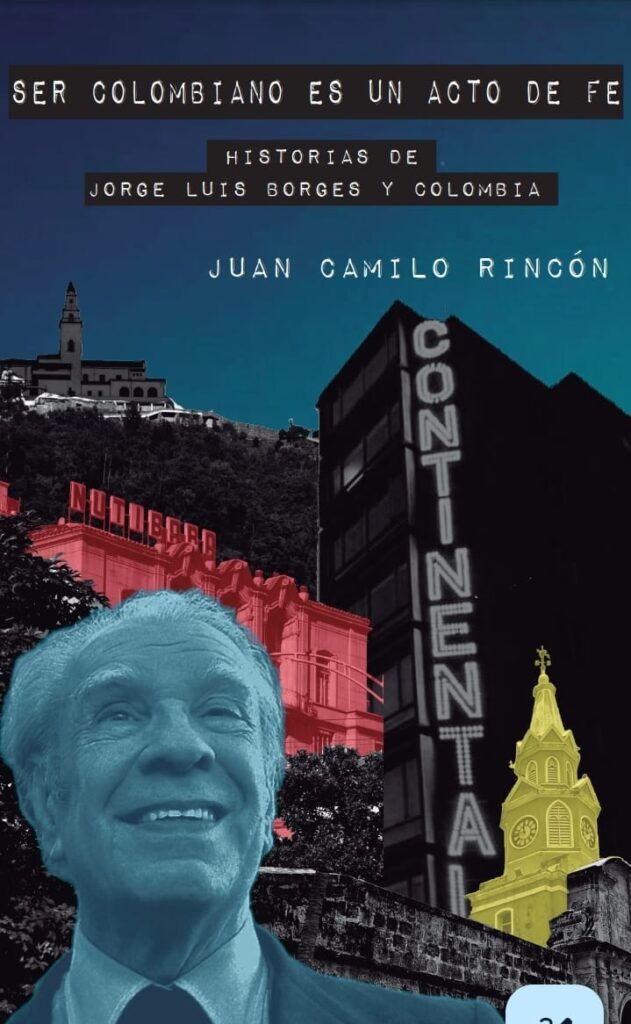
Juan Camilo Rincón: Ser colombiano es un acto de fe: Historias de Jorge Luis Borges y Colombia
Rincón truly hits the mark with this book. The research work that went into it admirably reflects this journalist’s passion for the Argentine’s literature, and is a display of the fine narrative journalism being practiced in his country. If you ask me, I believe this book will become one of those little treasures that Colombian literature has engendered over the years; what we read here is no less than an homage to the Borgesians, to being Colombian, to the act of faith that we all represent and that Borges managed to capture in ink in his lifetime. Time will pass and the Argentine will live on, and our letters will remain lofty as long as there are still people who write and recall how marvelous it is to know one is alive. – Santiago Díaz Benavides
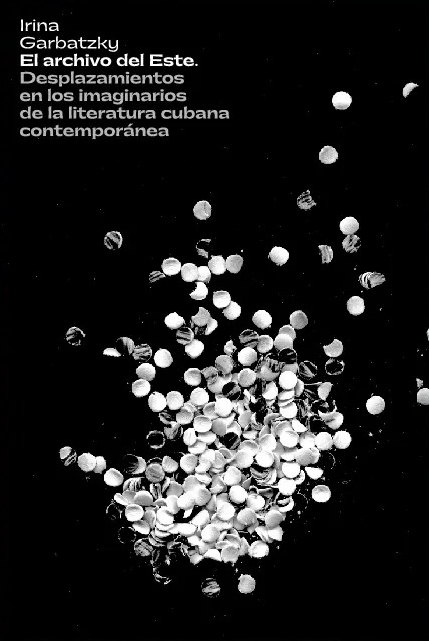
Irina Garbatzky: El archivo del Este: Desplazamientos en los imaginarios de la literatura cubana contemporánea
El archivo del Este: Desplazamientos en los imaginarios de la literatura cubana contemporánea ponders the persistence of the imageries, landscapes, and references points of Eastern Europe and the former Soviet Union in a selection of Cuban literary, performance, and theatre production, especially towards the end of the twentieth century. The corpus takes as its starting point the journal Diáspora(s)—the work of Carlos A. Aguilera, Rolando Sánchez Mejías, and José Manuel Prieto—and includes other authors of that generation (Antonio José Ponte, Reina María Rodríguez) as well as previous (Jesús Díaz, Fernando Villaverde) and following generations (from Generation Zero, like Abel Fernández Larrea). The general hypothesis is oriented towards the notion of the archive, in the sense given to it by Michel Foucault: not so much the documentary accumulation of a historical episode and more the systematization and emergence of a discursive constellation.
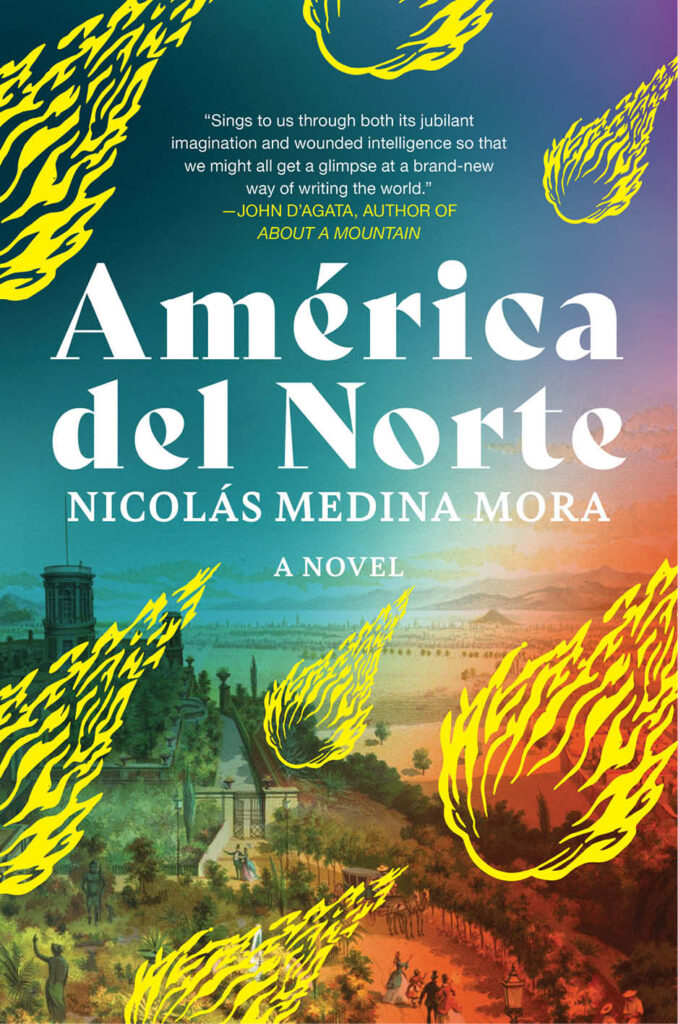
Nicolás Medina Mora: América del Norte
From the winner of the 2023 n+1 Writers’ Fellowship and taking place during the turbulent years under both the Trump and López Obrador administrations, América del Norte is a smart, playful, and illuminating novel that interrogates the fictional and dangerous nature of borders, nationalities, and ethnic identities—and the life-altering power of these contested politics. Medina Mora, a Mexico City native, weaves his keen sense of US–Mexico sociopolitics in this wonderfully ambitious work of autofiction, combining contemporary vignettes, political critique, failed essays, fictionalized letters, and more, to probe the Mexico City elite scene, to (lovingly) parodize the Iowa Writers’ Workshop, and ultimately, to wrestle with the contradictory relationship between two countries bound by geography and torn apart by politics. Medina Mora’s novel comes thirty years after NAFTA was signed into effect, but captures too the centuries-long history of political, emotional, and literary mistranslations between the US and Mexico before then.
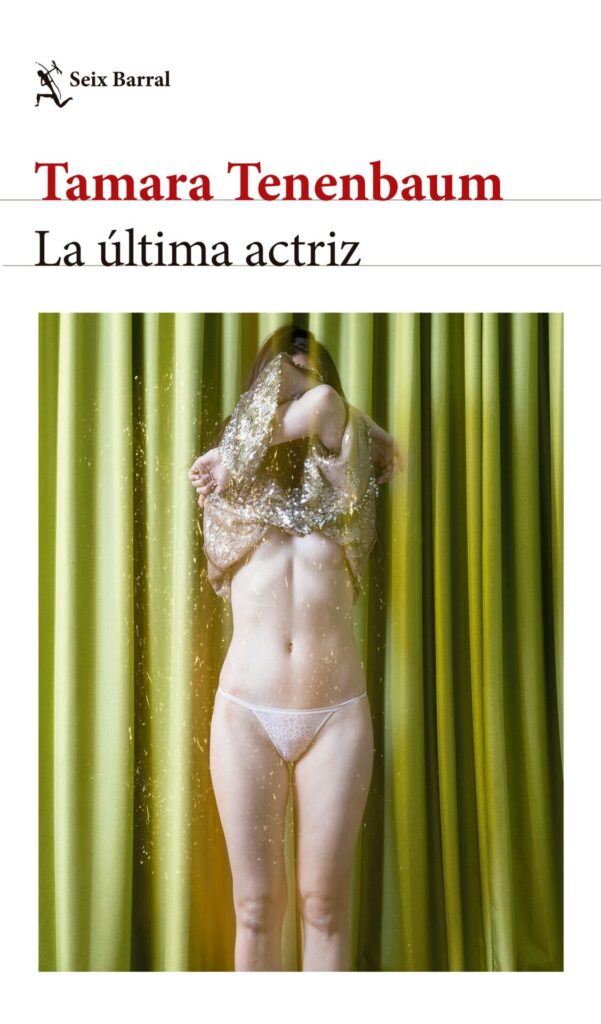
Tamara Tenenbaum: La última actriz
Although she once dreamed of being an actress, Sabrina ended up studying Arts. Spurred on by Gabriel—her thesis director and lover—she decides to research the tracks of Jewish theatre in Argentina. So she turns to Jaim, an old professor who suggests that she inspect the remains of the archives of the AMIA, the mutual society that suffered a terrorist attack in 1994. “It was at that moment that I decided I was going to dedicate myself to that past. It’s not that that world called my attention, not any more than any other world: what drew me in was the fact that it had disappeared.” In La última actriz, Tamara Tenenbaum displays an exceptional narrative intelligence. With two disturbing women characters and a plot as elusive as it is hypnotic, this novel deals with being a woman, with desire and realization, with the myth of the dybbuk and the possession of the body, with tradition and modernity, with the city of Buenos Aires and the search for an existential key amid a mound of burnt papers.
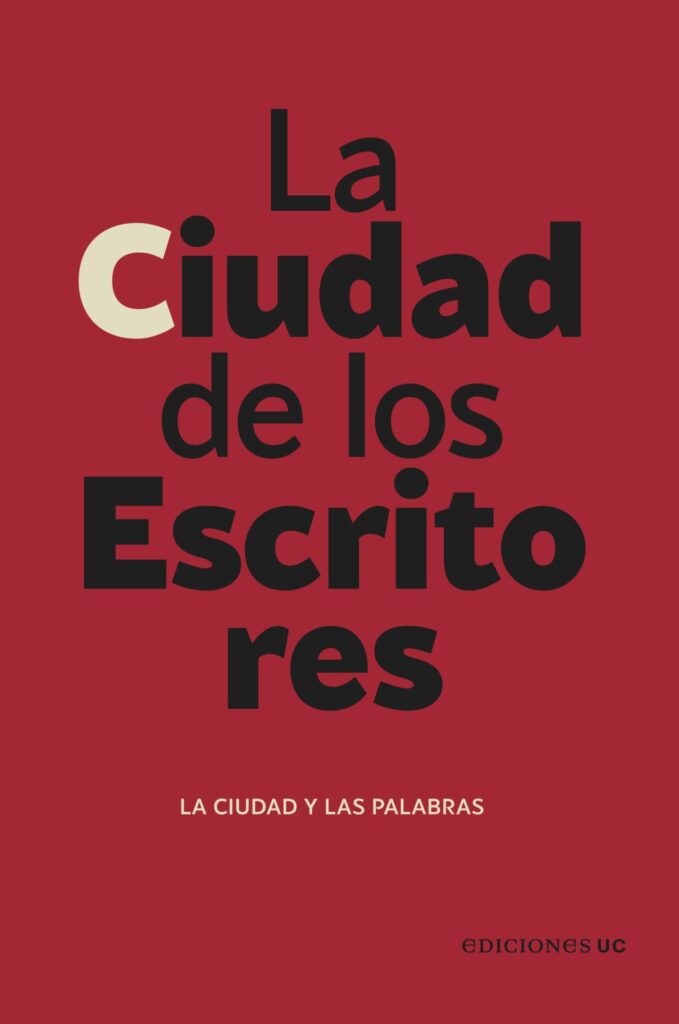
Loreto Villarroel, director: La Ciudad de los Escritores
La Ciudad de los Escritores is a product of the “La Ciudad y las Palabras” program, whose main goal is to enrich the perception of the city through film and literature. This initiative is based in the outreach branch of the Doctoral Program in Architecture and Urban Studies of the Department of Architecture, Design, and Urban Studies of the Pontificia Universidad Católica de Chile, and has been in operation for seventeen years. Throughout this time, the program has welcomed world-renowned writers and filmmakers, becoming a highly impactful space of encounter and cultural exchange. This book seeks to share the perspectives of a select group of authors on various cities, whether through their own experience or through that of other writers. The talks and interviews collected in this volume took place between 2020 and 2021, providing a contemporary, up-to-date vision of the relationship between literature, film, and the city. This project stands out for its contribution to the common good, as Alejandro Aravena (winner of the 2016 Pritzker Architecture Prize) points out in the book’s prologue. Aravena highlights the importance of literature to architects, as it allows us to grasp the emotional dimension that spurs on our actions in the city and elsewhere.
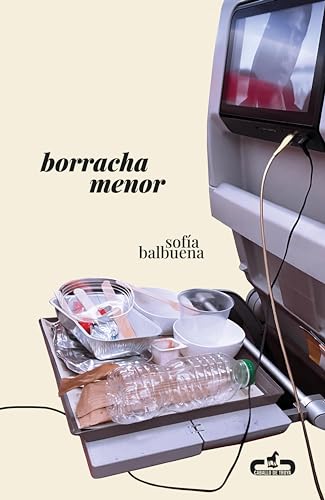
Sofía Balbuena: Borracha menor
“Sofía, don’t become an alcoholic,” her father tells her when she is about to leave Argentina behind and move to Barcelona. These words will become a personal prophecy. Sofía Balbuena opens a space, in the first person, to inspect the habits and structures that drive us towards certain patterns of consumption. With personal experience and her own life as a guiding thread, she reconstructs a mosaic of alcoholic narratives written by women in search of a space of belonging wider than the self. If women’s experience represents a minor literature, this book seeks to push that premise to its limit: to expose all that which could be considered minimal or little and put it at the center, hierarchize it, and submit it to light’s will.
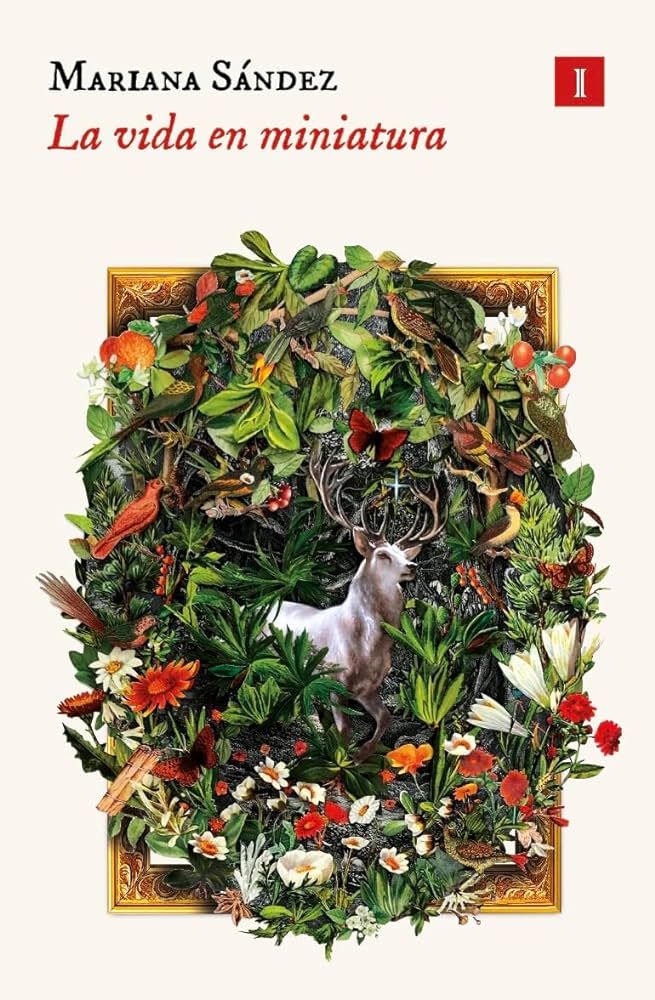
Mariana Sández: La vida en miniatura
Dorothea Dodds has lived 59 years unnoticed. In the shadow of a problematic, absent brother, she fills the roles of daughter, secretary, and caretaker of parents who never valued her enough. She is the perfect model of responsibility and diligence, the ideal person to leave in charge of the house during summer vacation. And so, one fine day when she needs to get away from it all, she decides to do just that. With the help of an English cousin named Mary Lebone, she gets a job that consists of watching houses and pets throughout the length and breadth of the English countryside. In these traces of the lives of others, she will finally find the necessary clues to figure out her own. With a prose style follows in the footsteps of Natalia Ginzburg or Iris Murdoch, La vida en miniatura is a novel with hints of a travel book, in which the path to be taken is on the inside: Dorothea zigzags through the green fields of England while retracing key episodes of her past and learning to live her present.
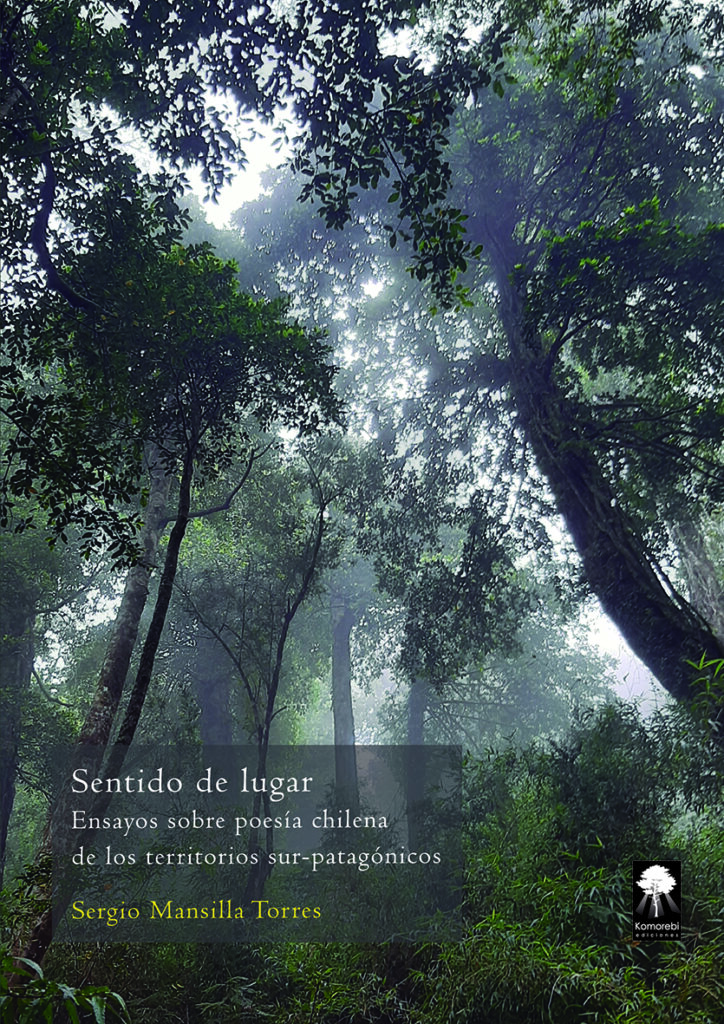
Sergio Mansilla Torres: Sentido de lugar: Ensayos sobre poesía chilena de los territorios sur-patagónicos
Sentido de lugar: Ensayos sobre poesía chilena de los territorios sur-patagónicos by Sergio Mansilla Torres is a book conceived as an imaginary journey through said territories and the texts that represent them, from the Valdivian temperate forests in the north to Tierra del Fuego in the far south. A passage through landscapes, memory, and subjectivities made of living, dreamed, and suffering places, as the indelable existencial experience of their authors, which morphs into poetic writing in dialogue with the geography, bodies, and writings of the world. Throughout these essays—which pulverize the clichés that exist around southern Chilean poetry (“larismo,” or place poetry, being one of them), demonstrating its permanent exploration and complexity—the author enters into the oeuvres of renowned poets like Maha Vial, Verónica Zondek, Jaime Luis Huenún, Delia Domínguez, and Christian Formoso, as well as others who have developed their craft exclusively in these territories and who cry out to be discovered in others, such as Ivonne Coñuecar, Ramón Quichiyao, Marlene Bohle, and Juan Pablo Riveros, among others.


